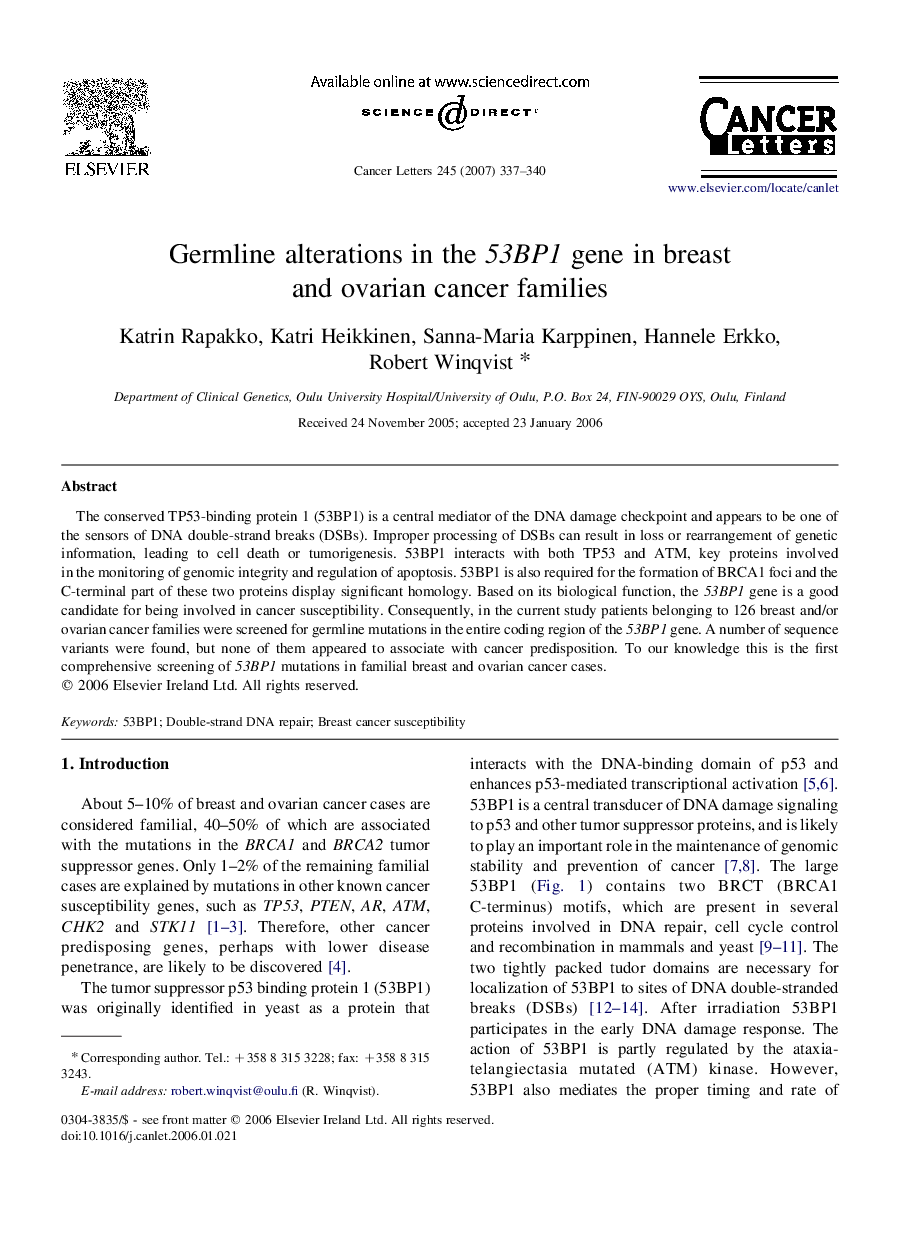| Article ID | Journal | Published Year | Pages | File Type |
|---|---|---|---|---|
| 2115460 | Cancer Letters | 2007 | 4 Pages |
The conserved TP53-binding protein 1 (53BP1) is a central mediator of the DNA damage checkpoint and appears to be one of the sensors of DNA double-strand breaks (DSBs). Improper processing of DSBs can result in loss or rearrangement of genetic information, leading to cell death or tumorigenesis. 53BP1 interacts with both TP53 and ATM, key proteins involved in the monitoring of genomic integrity and regulation of apoptosis. 53BP1 is also required for the formation of BRCA1 foci and the C-terminal part of these two proteins display significant homology. Based on its biological function, the 53BP1 gene is a good candidate for being involved in cancer susceptibility. Consequently, in the current study patients belonging to 126 breast and/or ovarian cancer families were screened for germline mutations in the entire coding region of the 53BP1 gene. A number of sequence variants were found, but none of them appeared to associate with cancer predisposition. To our knowledge this is the first comprehensive screening of 53BP1 mutations in familial breast and ovarian cancer cases.
